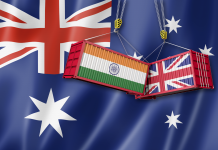NEW DELHI (AP) –India’s top wrestlers threaten the state to throw their medals into the country’s sacred Ganges River as part of an ongoing protest against sexual harassment.
The wrestlers, who have been demanding the resignation and arrest of the president of the wrestling federation for allegedly sexually harassing young female athletes, had said they would throw their medals into the river and then begin a hunger strike in the capital New Delhi.
The protests are led by two women, Olympic medalist Sakshi Malik and world medalist Vinesh Phogat, and male Olympic medalist Bajran Punia. They arrived in the city of Haridwar in the evening and sat tearfully on the river bank with medals in their hands as the crowd gathered around them.
“These medals are our life, our soul. After immersing them in the Ganges, our life has no meaning. So we’re going to India Gate and fasting to death,” the wrestlers said in a statement released Tuesday. India Gate is a war memorial in the center of New Delhi.
The wrestlers, along with hundreds of supporters, have been holding a month-long protest in central New Delhi, taking a break from their practice schedules in a scorching heat wave. The protest attracted support from opposition parties and farmers’ unions, as most of the Indian wrestlers are from the northern agricultural states of Haryana and Punjab. They accused Indian Wrestling Federation president Brij Bhushan Sharan Singh of sexually abusing seven young female wrestlers, one of whom was a minor. Singh, a 66-year-old influential lawmaker representing the ruling Hindu nationalist Indian Bharatiya Janata Party, denied the allegations, saying the protests were “politically motivated” by the opposition Congress party.
As Prime Minister Narendra Modi inaugurated the new parliament building on Sunday, police arrested a number of protesters, including Punia and Malik, who were trying to march towards the building. Some demonstrators got into an altercation with the police and were taken away by bus.
In a statement Tuesday, the wrestlers said they were treated “barbarically” by police and the protest venue was vandalized. “Have we committed a crime seeking justice for sexual harassment of wrestlers? We were treated like criminals,” they said. “We wrestlers feel like there’s nothing left in this country.”
In January, Foghat alleged that several coaches had exploited female wrestlers on orders from the WFI president.
Indian police are investigating allegations of sexual harassment against Mr Singh and are being questioned in the matter. India’s Supreme Court also confirmed the case as a “serious allegation of sexual harassment”, but ruling party leaders, including Modi, remained silent. After the first protests in January, India’s sports minister, Anurag Singh Thakur, called on the federation’s president to step down and help conduct an investigation. He also said a commission had been set up to investigate the allegations and a report would be released within four weeks.
But the protests resumed in April after no reports were released for months while Shin was still at the helm of the federation.
The incident once again highlights India’s #MeToo movement, which gained momentum in 2018 after a spate of sexual harassment and assault allegations by actresses and authors flooded social media.






